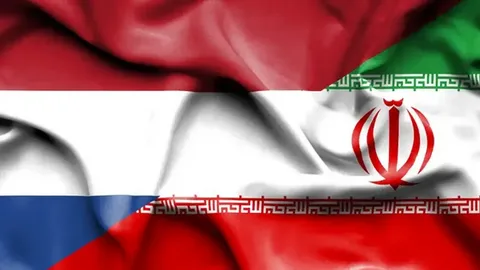Austria, nestled in the heart of Europe, has long served as a neutral ground for international diplomacy, peace negotiations, and cultural exchange. Its capital, Vienna, has hosted historic dialogues on nuclear proliferation, refugee policy, and East-West relations. Among the most notable of these were the Iran nuclear talks—making Austria a key location in the broader story of Iran’s modern trajectory.
But today, as the Iranian people rise not for treaties, but for their fundamental freedoms, Austria’s role has shifted. It is no longer just a diplomatic host—it has become a moral observer and a quiet but firm voice of solidarity.
Austrians are recognizing that human rights are not merely subjects of international law, but of everyday conscience. And in this moment, Austria is standing with the Iranian people—not as negotiators, but as fellow human beings.
1. A Long History of Iran–Austria Relations
Cultural and Diplomatic Ties
The relationship between Iran and Austria dates back to the early 19th century. Austro-Hungarian envoys traveled to Qajar Persia, while Persian diplomats engaged with the Viennese court. Over the centuries, cultural diplomacy deepened—particularly in music, medicine, and education.
Even during times of geopolitical strain, Austria maintained relations with Iran. Unlike many Western powers, Austria has consistently sought engagement over confrontation. Austrian universities have welcomed Iranian students, and Austrian firms have operated in Iran, especially in energy and engineering sectors.
This legacy of diplomacy provides Austria with a unique moral responsibility: to use its historical proximity to elevate the voices of the Iranian people during their time of need.
2. Iran Protests Seen Through an Austrian Lens
The Role of Vienna
Vienna, long considered a neutral ground in world affairs, has again become a symbolic space for protest and political awakening. Iranian Austrians, students, and activists have gathered in Vienna’s central squares—Stephansplatz, Heldenplatz, and in front of the Austrian Parliament—holding vigils, marches, and artistic exhibitions to raise awareness about the crisis in Iran.
These events are peaceful but powerful, blending Iranian protest chants with Austrian democratic traditions. Signs in German and Farsi read: Freiheit für Iran (Freedom for Iran) and Menschenrechte sind universell (Human rights are universal).
3. Austria’s Iranian Diaspora Speaks
A Community Between Two Worlds
Austria is home to one of Europe’s most intellectual and politically active Iranian diasporas. Many members of the community arrived during or after the 1979 revolution, seeking academic freedom, personal security, or political asylum.
Now, their children—second-generation Iranian Austrians—are amplifying the message. Using film, poetry, digital media, and academic forums, they’ve become vocal advocates for change in Iran. From the University of Vienna to cultural centers in Graz and Linz, discussions on Iran’s protests have become part of public discourse.
This diaspora understands the cost of silence. And they are determined not to remain silent this time.
4. Political Response from Austria
Balanced Diplomacy, Clear Values
While Austria has traditionally followed a policy of engagement with Iran—especially during the nuclear negotiations—it has not hesitated to raise concerns over human rights violations.
In late 2022, Austrian Members of Parliament joined their European counterparts in condemning the Iranian government’s violent crackdown on protesters. Foreign Minister Alexander Schallenberg stated:
“Austria respects Iran’s sovereignty, but we also expect universal rights—freedom of speech, freedom of assembly, and protection from state violence—to be honored.”
Austria also joined the EU’s coordinated sanctions on specific Iranian officials tied to repression, while maintaining humanitarian and cultural links to Iranian civil society.
5. Austrian Civil Society and the Arts Take the Lead
Museums, Theaters, and Music as Resistance
Austria’s rich artistic heritage is now serving a new purpose: resistance through expression. Museums such as the Weltmuseum Wien and Kunsthalle Wien have hosted exhibitions inspired by Iranian protest art. Theaters have staged performances that incorporate stories of Iranian women, exiled writers, and imprisoned journalists.
At the Vienna Philharmonic and in independent music venues, concerts have been dedicated to Iranian protestors, with proceeds going to international human rights organizations working to protect Iranian activists.
6. A European Commitment to Women, Freedom, and Life
Women. Life. Freedom. (Zan. Zendegi. Azadi.)
Austrian feminist groups have been especially active in echoing Iran’s revolutionary slogan: “Women. Life. Freedom.” Campaigns organized by the Österreichischer Frauenring and FEM Süd have featured posters, essays, and public demonstrations calling attention to the bravery of Iranian women.
They point out that while Austria has made strides in gender equality, the global struggle for women’s rights must remain united. For many Austrian women, supporting their Iranian sisters is not a gesture of charity, but of shared destiny.
7. Education and Student Solidarity
Universities as Hubs of Activism
From Vienna to Innsbruck, students and professors have organized symposia on civil disobedience, totalitarian regimes, and gender oppression. Iranian guest lecturers, now living in exile, have found platforms in Austria to speak freely—bringing firsthand narratives of Iran’s protests to classrooms and auditoriums.
Student groups have also joined European-wide demonstrations, linking Iran’s uprising with global demands for academic freedom, anti-surveillance reforms, and protection of dissent.
Conclusion
Austria’s solidarity with Iran is not loud, but it is profound. It comes not from headlines, but from classrooms, city squares, concert halls, and the hearts of those who understand what it means to live free.
As the Iranian people continue to stand against fear, Austrians—from politicians to poets—are joining them with a message rooted in their own historical values:
Human dignity is not negotiable.
Austria may be small in size, but it stands tall in principle. And today, those principles compel it to stand with Iran.

Add a Comment